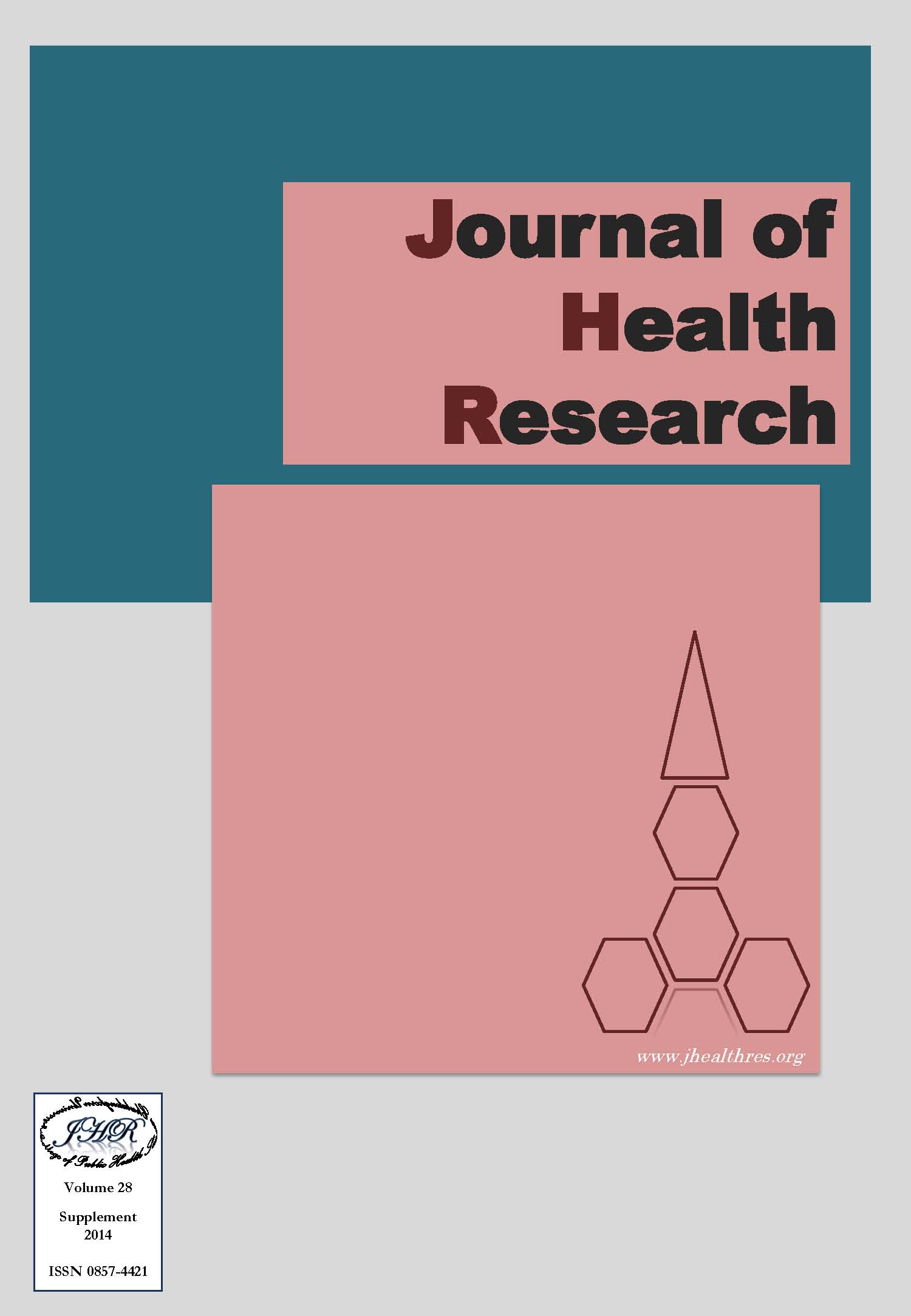Maternal Knowledge Attitude and Practice of Preventing Diarrhea among Children under Five in Migrants in Mae Sot District, Tak Province, Thailand
Keywords:
Maternal health, Child health, Diarrhea, Knowledge attitude and practice, Migrants, ThailandAbstract
A cross-sectional research’s objectives was to study the factors influencing the maternal practice of diarrhea prevention in under five children in migrants, Mae Sot, Tak province, Thailand. One hundred and twelve samples were both illegal and legal migrants living in Hua Fai village, Phatadpadaeng sub-district, Mae Sot district. Data collection was conducted on March to April 2014. A structured questionnaire in 4 parts was used for interviewing. The overall reliability value was 0.87. Statistics used were frequency, percentage, mean, standard deviation and chi-square test. The results revealed that most of the respondents were mothers aged 19-48 (46.4%). They were married (91.1%), Burma (82%), did not have work permit (78.6%), finished primary school (46.4%), and were housewives (72.3%). Average number of their family was three. Average income was 5,030 Thai baths monthly. Respondents were chosen if they had a diarrhea history in the past two months. Most of the respondents had longer duration of stay in Thailand over two years (89.3%). The respondents had their knowledge level on prevention of diarrhea for 85.7% (good level), had their attitude level on prevention of diarrhea for 87.5% (neutral level) and their practice on prevention of diarrhea for 61.6% (intermediate level). Demographic characteristics which were found to be significant with the practice of prevention of diarrhea were marital status (P=0.001), educational status (P=0.002), average income per month (0.028) and enough income (P=0.009). The Spearman’s correlation test was used to investigate the relationship between the demographic variables, knowledge, attitude and practice of diarrhea prevention. There were weak positive correlations between knowledge and prevention practice of diarrhea as well as between attitude and prevention practice of diarrhea. The findings indicate that if people are supported with sufficient knowledge through various channels, they will come to have good practice in preventing diarrhea in children under five years.







